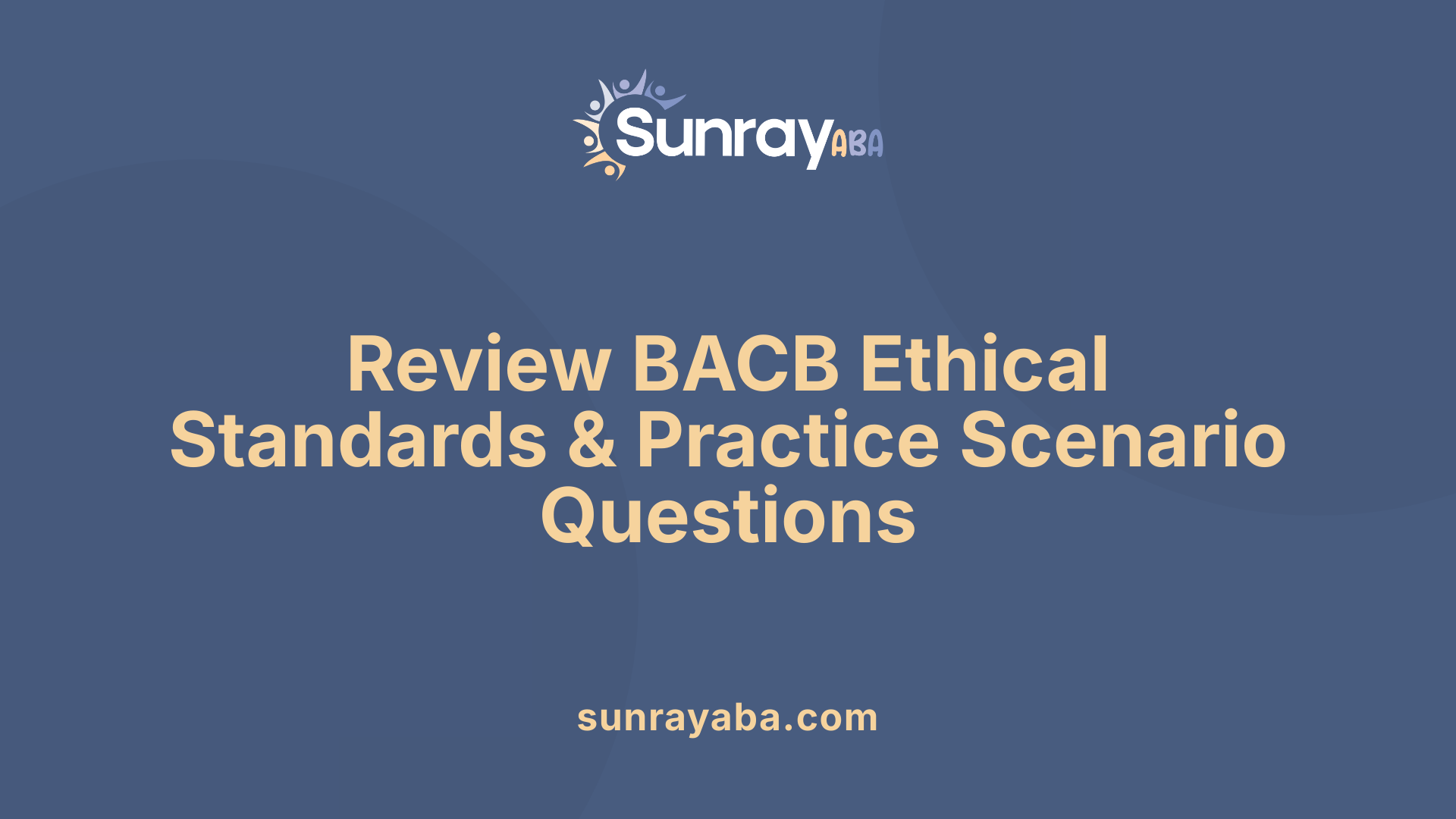Behavior Analyst Interview Questions & Answers

Preparing for Success in Behavioral Analyst Roles
Embarking on a career as a Behavioral Analyst, whether as a BCBA or ABA therapist, requires thorough preparation and a deep understanding of core principles. This guide provides comprehensive insights into common interview questions, key skills, and strategic approaches to excel in your upcoming interview, ensuring you demonstrate both technical expertise and compassionate client engagement.
Understanding the Core of ABA and Ethical Standards

How can I prepare for a Behavioral Analyst job interview?
Preparing for a job interview as a Behavior Analyst involves several strategic steps. First, review and master core Applied Behavior Analysis (ABA) principles and terminology. Understand the ethical standards set by professional organizations such as the BACB, including confidentiality, client rights, and data integrity. Familiarize yourself with common intervention techniques like reinforcement strategies, extinction, and behavior reduction procedures.
Next, research the organization thoroughly. Learn about their client populations, setting, and approach to behavior support. This enables you to tailor your responses and demonstrate your genuine interest.
Practicing responses to common questions using the STAR method (Situation, Task, Action, Result) can enhance clarity and confidence. Prepare examples from your experience that showcase your skills in data collection, behavior assessment, and intervention success.
Having a professional resume and portfolio ready with certifications like BCBA, success stories, and relevant training enhances your presentation. Consider mock interviews to simulate real scenarios. Choose professional attire, arrive early, and bring necessary documents. After the interview, a courteous follow-up note leaves a positive impression.
What are common interview questions for Behavioral Analysts?
Interviewers frequently ask about candidates' motivation for entering behavior analysis, educational background, and practical experience. Typical questions include how you establish trust with clients, handle challenging behaviors, or implement strategies like differential reinforcement.
They may inquire about specific ABA techniques such as discrete trial training or modeling, and how these are adapted to individual needs, especially in populations like children with autism. Ethical considerations are often explored; interviewers want to assess your understanding of confidentiality, informed consent, and professional boundaries.
Additionally, questions about your ability to collaborate with families, multidisciplinary teams, and your approach to measuring client progress are common. Illustrating your answers with examples helps demonstrate both your technical skills and interpersonal qualities.
What skills and competencies are evaluated during a Behavioral Analyst interview?
Candidates are assessed on a blend of technical and soft skills. Proficiency in data collection, analysis, and designing effective treatment plans is essential. Demonstrating a solid grasp of ABA principles, as well as adherence to ethical standards, is crucial.
Soft skills include active listening, empathy, clear communication, and teamwork. These are vital for working with clients, families, and professionals from various backgrounds.
Critical thinking and problem-solving are evaluated through scenario-based questions. Creativity in developing interventions and the ability to adapt strategies are highly valued. Traits like cultural competence, organization, and a growth mindset further indicate a candidate’s potential for ongoing professional development.
What does the interview process for a Behavioral Analyst role typically involve?
The interview process usually includes behavioral and situational questions designed to assess your knowledge, decision-making skills, and ethical understanding. You may be asked to describe how you handle challenging cases or conduct functional behavior assessments.
Role-playing scenarios and discussing past experiences help interviewers evaluate your practical skills. Emphasis is placed on your ability to interpret data, adjust interventions, and measure progress accurately.
Ethical considerations are central—expect questions on confidentiality, data security, and compliance with BACB guidelines. The process aims to gauge your clinical expertise, ethical judgment, and collaboration skills, often through real-world examples.
Are there resources available to help prepare for a Behavioral Analyst interview?
Absolutely. Numerous resources exist to aid in preparation. Practice answering common interview questions related to ABA techniques, gaining confidence in articulating your experience and approach.
Studying the BACB’s ethical standards and core principles enhances your readiness. Many online platforms offer mock interview scenarios and sample responses, helping you refine your communication skills.
Engaging with professional networks and forums provides insights into current trends and expectations. Reflecting on your personal strengths—like patience, empathy, and problem-solving—can improve your interview presence. Consistent preparation boosts your chances of success and confidence in landing a role in this rewarding field.
Key Takeaways for a Successful Interview
Preparing for a Behavioral Analyst interview involves a blend of mastering technical knowledge, demonstrating ethical integrity, and showcasing interpersonal skills. Focusing on core ABA principles, practicing responses with real-world examples, and understanding the unique needs of different client populations can set you apart. Remember to research the organization thoroughly, prepare insightful questions, and present yourself professionally. With diligent preparation and confidence, you will be well-positioned to succeed and advance in the rewarding field of behavior analysis.
References
- 6 Board Certified Behavior Analyst (BCBA) Interview Questions
- 6 Behavior Support Specialist (BSS) Interview Questions | APOS
- How to Prepare for an ABA Job Interview: 7 ABA Interview Questions
- 6 Behavioral Analyst Interview Questions | NACDD
- Interview Preparation for RBTs - 40 Hour RBT® Online Training
- 6 Behavioral Analyst Interview Questions | NACDD
- Using the STAR method for your next behavioral interview ...
- How to prepare for a behavior analyst interview in 2025?